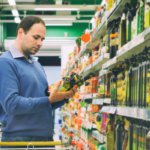
Supermarket discounts: How special are specials?
Last updated on April 29th, 2025
We have all fallen for supermarket discounts, from ‘buy one, get one free’ inducements to promises of ‘everyday low prices’.
But with more than half the products bought at Coles and Woolworths on promotion, and the supermarket giants raking in profits at a time many Australians are struggling, just how special are those specials?

In its long-awaited report into the country's supermarkets, the Australian Competition and Consumer Commission (ACCC) found that promotional practices make it difficult for consumers to know if they are getting value for money.
Widespread allegations of price gouging prompted the supermarkets inquiry – the first in 16 years – but ACCC deputy chair Mick Keogh said the consumer watchdog was unable to reach that conclusion, partly because of the complexities surrounding the range of products, margins and weekly price changes.
However, the ACCC recommended a raft of changes, including greater transparency around pricing and supermarket promotions, as well as loyalty programs.
Concern about supermarket prices
More than 21,000 consumers responded to the ACCC’s consumer survey for the inquiry, which also looked at the squeeze felt by growers and suppliers from Coles and Woolworths, which account for two-thirds of Australia’s supermarket grocery sales. Shoppers tell a similar story to the many consumers who have lodged complaints about supermarket pricing with Handle My Complaint. With food taking a bigger slice of our budget every week, it’s little wonder that consumers are up in arms. So, what are some of the ways Australians feel ripped off?
Special offers that aren’t so special
There are many ways supermarkets entice us to spend more, including offering weekly specials, half-price items, multibuy deals, and using catchphrases such as ‘super savers’, 'down down’, ‘everyday low prices’ and ‘prices dropped’. We all love a deal and are likely to buy more if we think we’ll save money in the long run. But these deals aren’t always what they seem.
The ACCC launched proceedings against Coles and Woolworths in the Federal Court in late 2024, accusing them of breaching Australian Consumer Law with “illusory discounts” on more than 500 products.

They claimed that the supermarkets increased their prices by as much as 15 percent for a short amount of time so that they could then drop them in promotions. However, those 'reduced’ prices were often higher than the original price. Two law firms have also lodged class actions against the supermarkets over alleged fake discounts.
Confusion over pricing
Have you ever picked several things off the shelf based on the 'special’ or ‘discount’ tag next to it, only to see a different price come up as you’re scanning the item? You’re not alone. Consumers also complained about price discrepancies between in-store items and what is advertised online, and online ‘sales’ prices not actually being on sale at all.
It doesn’t help that supermarket tags bear a dizzying array of terms that make you believe you are getting a bargain. A Choice survey found that one in four people were confused about supermarket discounts. A ‘low price’ tag, for example, might make you think it’s on sale when in fact the supermarket has just decided it’s a good deal. Labels like ‘prices dropped’ are often used without any indication of when, if at all, that happened.
Other common price concerns
Consumers are also being short-changed at the checkout in other ways, whether they are buying online or in store.
The rise of shrinkflation
The price of an item might not go up, but the product’s size decreases, meaning you’re paying more for less. This is known as shrinkflation and, despite the supermarkets’ denials, regular grocery shoppers say the practice is widespread.
Shrinkflation was a major concern for those who responded to the ACCC inquiry, with the watchdog recommending that supermarkets be compelled to tell consumers when package size changes to their detriment by:
-
- Providing information about the previous and current unit price
- Publishing this near the pricing ticket on the shelf and online
- Publishing this for a set time so shoppers can be made aware of it
Treasurer Jim Chalmers also confirmed the Federal Government was overhauling the Unit Pricing Code, which requires retailers to show the unit price of an item (such as per kg or litre) to help shoppers decide if they are really getting a bargain. Mr Chalmers said strengthening the code would help combat “sneaky shrinkflation that drives people crazy”.
Loyalty programs don’t reward loyalty
If you’re a member of either Coles Flybuys or Woolworths Everyday Rewards, you may appreciate the many specials offered exclusively to loyalty program members each week. But the ACCC found that while they might be good for the supermarkets, loyalty programs aren’t necessarily good for you, enticing you to spend more with very little return.
"Coles and Woolworths' use of 'points' reduces consumers' ability to accurately value the various available offers and their participation in these programs generally, with the risk that they overestimate that value,” the report found. "Excluding bonus points offers, members of Coles and Woolworths' loyalty programs need to spend $2,000 to earn a $10 discount.”

The ACCC also said gamification techniques – game-like elements and principles such as points and collectibles – may affect buying patterns and discourage competition, with members likely to increase spending at a particular supermarket the closer they get to milestones.
Finding the real specials
Grocery shopping is enough of a chore without having to worry about whether supermarket discounts are the real deal. But there are a few simple steps you can take to help keep those costs down:
-
- Read the specials or discount tags carefully and compare the original price. Often there is not a deal to be had.
- Check the unit price of an item on sale – it may be cheaper to buy the larger size than the two-for-one ‘deal’, or a competitor’s brand.
- Confirm that multi-buys add up to a bargain. This enduring sales tactic not only encourages you to buy more than you need but invariably costs you more.
- Compare prices online and don’t be afraid to shop around – Coles and Woolworths may dominate the market but there are alternatives. Competition is healthy.
- Get the lowdown on the psychology of supermarket selling and you will be less likely to fall for those ‘super savers’.
Supermarket promotions can be tricky — do they really save you money, or just encourage you to spend more? We want to hear about your grocery shopping habits—from where you shop to your thoughts on delivery services. Share your experience in our quick survey and help us advocate for greater transparency and lower prices at the checkout.
Have you noticed a dodgy deal? A special that’s not so special? A supermarket discount that is anything but? Make a complaint with us and we’ll help you handle it.






